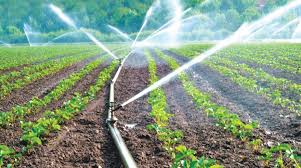In an era where water conservation is as crucial as crop yield, modern sprinkler systems have emerged as vital tools in the arsenal of sustainable agriculture practices. These systems not only facilitate efficient water usage but also enhance crop productivity and resource management. By incorporating advanced technologies, modern sprinkler systems optimize irrigation practices to meet the specific needs of different terrains and climatic conditions.
Understanding Sprinkler Systems
A sprinkler system typically consists of a series of pipes and sprinkler heads strategically laid out across the agricultural field. The system is designed to mimic natural rainfall to deliver water directly to the soil, thus maximizing absorption and reducing wastage. The versatility of sprinkler systems allows for adjustments in water pressure and droplet size, which can be tailored to the requirements of various crops and soil types.
Water Efficiency
One of the primary benefits of using a sprinkler system is the significant reduction in water consumption. Traditional irrigation methods, such as flood irrigation, often lead to excessive water usage and high runoff, which can strip the soil of nutrients. Sprinkler systems deliver water in controlled amounts directly to the root zone of plants. This targeted approach not only saves water but also ensures that crops receive the right amount of moisture needed for optimal growth.
Technological Integration
Advancements in technology have greatly enhanced the functionality of sprinkler systems. Modern systems can be equipped with timers, sensors, and automated controls that precisely adjust the watering schedule based on humidity, soil moisture levels, and weather forecasts. This integration of technology helps in maintaining the balance between achieving maximum crop yield and minimizing water usage. For instance, the incorporation of smart sensors can detect the moisture content in the soil and adjust the sprinkler operation to prevent over-irrigation and under-irrigation.
Benefits to Soil Health
Sprinkler systems also play a crucial role in maintaining soil integrity and health. By preventing water overflow and reducing surface runoff, these systems help in avoiding soil erosion and nutrient leeching. The gentle application of water through sprinklers mimics natural rainfall, which is less likely to disturb the soil structure or harm delicate plant roots. This method ensures that the soil remains aerated and well-structured, which is vital for the growth of healthy crops.
Crop Productivity and Quality
Enhanced crop productivity is another significant advantage offered by sprinkler systems. Uniform water distribution ensures that all parts of the field receive an equal amount of water, which promotes consistent crop growth across the entire area. This uniformity helps in reducing the instances of under-watered or over-watered spots, which can lead to plant diseases and uneven crop development. Furthermore, the ability to control water flow and pressure minimizes the stress on plants, resulting in healthier crops and higher yields.
Environmental Impact
The environmental impact of sprinkler systems cannot be overstated. By optimizing water usage and reducing runoff, these systems significantly lower the risk of water pollution associated with agricultural runoff. Chemicals and fertilizers, which are often used in farming, are less likely to enter nearby water bodies when sprinkler systems are used. Additionally, the reduction in water usage contributes to water conservation efforts, which is critical in regions facing water scarcity issues.
Cost-Effectiveness
Initially, the installation of a sprinkler system may seem costly, but the long-term savings on water bills and increased crop yields justify the investment. Modern sprinkler systems are designed to be durable and require minimal maintenance, which reduces ongoing costs. Moreover, the efficiency in water and resource management translates into higher profitability for farmers through savings on water and enhanced crop production.
Conclusion
Modern sprinkler systems represent a convergence of efficiency, technology, and environmental stewardship. They are pivotal in promoting sustainable agriculture by enhancing water use efficiency, boosting crop productivity, and minimizing adverse environmental impacts. As the global population grows and the demand for food increases, the importance of efficient irrigation systems like sprinklers becomes more apparent, making them indispensable in the future of farming. With continuous improvements in technology, these systems are set to become even more integral to achieving global food security and sustainability in agriculture.





More Stories
What to Look for in a Countertop Contractor
Home Decoration Ideas to Personalize Your Home